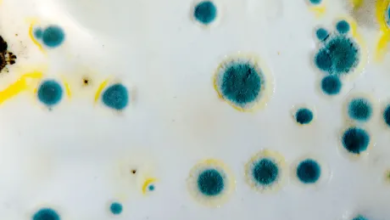7 Effective Ways to Ease Neuropathy Pain
Living with neuropathy can be a challenging and painful experience. Whether you're dealing with diabetic neuropathy, peripheral neuropathy, or another form of nerve damage, finding effective ways to alleviate the discomfort is crucial.

In this comprehensive guide, we explore seven highly effective strategies to ease neuropathy pain and improve your overall quality of life.
Understanding Neuropathy
Before delving into the solutions, let’s briefly touch upon what neuropathy is. Neuropathy involves damage to the nerves, leading to a range of symptoms such as tingling, numbness, and pain. It can result from various causes, including diabetes, infections, traumatic injuries, and more.
1. Maintain a Balanced Diet
A healthy diet is fundamental in managing neuropathy. Ensure your meals include a mix of nutrient-rich foods such as fruits, vegetables, whole grains, and lean proteins. Focus on foods that promote nerve health, like those rich in vitamins B, especially B12. Supplements can also be beneficial in meeting your nutritional needs.
2. Exercise Regularly
Physical activity plays a crucial role in managing neuropathy symptoms. Engaging in regular exercise helps improve blood circulation and reduces pain. Opt for activities such as walking, swimming, or low-impact exercises to keep your nerves stimulated and enhance overall well-being.
3. Explore Physical Therapy
For targeted relief, consider physical therapy. A professional therapist can guide you through exercises that specifically address neuropathy-related symptoms. Techniques such as stretching and strengthening exercises can contribute to pain reduction and improved functionality.
4. Utilize Medications Wisely
In some cases, medication may be necessary to manage neuropathy pain effectively. Consult with your healthcare provider to explore options such as prescription medications or over-the-counter pain relievers. It’s essential to find the right balance to alleviate pain without causing undesirable side effects.
5. Embrace Alternative Therapies
Complementary and alternative therapies can complement traditional approaches in neuropathy management. Techniques like acupuncture and massage therapy have shown promise in relieving nerve pain. Explore these options under the guidance of qualified professionals to determine their suitability for your specific condition.
6. Manage Stress
Chronic stress can exacerbate neuropathy symptoms. Incorporate stress management techniques into your daily routine, such as meditation or yoga. These practices not only promote relaxation but also positively impact your overall nervous system health.
7. Maintain Optimal Blood Sugar Levels
For individuals with diabetic neuropathy, blood sugar control is paramount. Keeping your blood glucose levels within the recommended range can significantly reduce nerve damage and alleviate associated pain. Work closely with your healthcare team to develop a personalized plan for managing diabetes effectively.
In conclusion, incorporating a multifaceted approach to neuropathy management is key to achieving relief. From maintaining a balanced diet to exploring alternative therapies and stress management, these strategies collectively contribute to a holistic and effective solution for easing neuropathy pain.
Understanding Neuropathy
Neuropathy is a condition that affects the peripheral nerves, causing pain, tingling, and numbness. It often results from underlying medical conditions such as diabetes, autoimmune diseases, or trauma. To effectively manage neuropathy pain, it’s crucial to first understand its origins and impact on daily life.
Holistic Lifestyle Changes
1. Balanced Diet
A well-balanced diet plays a pivotal role in managing neuropathy. Incorporating anti-inflammatory foods such as fatty fish, leafy greens, and nuts can help reduce inflammation and alleviate pain. Additionally, maintaining a healthy weight can ease pressure on nerves and contribute to overall well-being.
2. Regular Exercise
Engaging in regular physical activity can significantly improve neuropathy symptoms. Focus on exercises that enhance circulation, such as walking, swimming, or yoga. These activities promote blood flow, reducing nerve pain and enhancing mobility.
Advanced Pain Management Techniques
3. Topical Treatments
Explore the benefits of topical treatments to target neuropathic pain directly. Capsaicin creams and patches containing lidocaine can provide relief by numbing the affected areas. Consult with your healthcare professional to determine the most suitable option for your specific condition.
4. Prescription Medications
In some cases, prescription medications may be necessary to manage neuropathy pain effectively. Medications like antidepressants and anticonvulsants have shown success in alleviating nerve-related discomfort. Consultation with a healthcare provider is essential to tailor the medication regimen to your unique needs.
Alternative Therapies
5. Acupuncture
Acupuncture is an ancient practice that involves the insertion of thin needles into specific points on the body. Studies suggest that acupuncture can help reduce neuropathy pain by stimulating nerve function and promoting natural healing processes.
6. Mind-Body Techniques
Mind-body techniques, such as meditation and biofeedback, can aid in managing neuropathy pain by promoting relaxation and reducing stress. These practices empower individuals to gain better control over their bodies and, consequently, their pain levels.
Self-Care Strategies
7. Foot Care
Neuropathy often affects the feet, making proper foot care crucial. Regularly inspect your feet for any cuts, sores, or infections. Wearing comfortable, supportive shoes can prevent further damage and enhance overall comfort.
8. Heat and Cold Therapy
Applying heat or cold to affected areas can provide immediate relief from neuropathy pain. Experiment with both methods to determine which works best for you. Warm baths or cold compresses can be soothing and effectively alleviate discomfort.
Conclusion
In conclusion, managing neuropathy pain involves a holistic approach that combines lifestyle changes, advanced pain management techniques, alternative therapies, and self-care strategies. By incorporating these proven techniques into your daily routine, you can take control of your neuropathy symptoms and improve your overall well-being.




